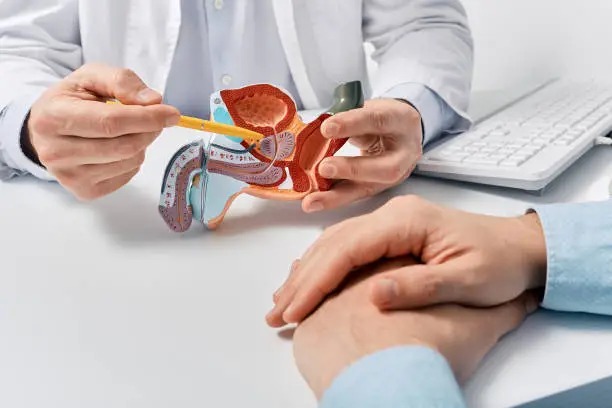
What Does a Urologist Do? Understanding Their Role in Your Health
In the intricate landscape of modern medicine, specialists play a crucial role in providing targeted, expert care. Among these, the urologist stands as a vital figure, dedicated to the health of a body system that is often overlooked until problems arise: the urinary tract, and in men, the male reproductive system. While the word "urology" might conjure images of specific male health issues for some, the reality is that a Urologist in London expertise extends to a broad spectrum of conditions affecting individuals of all genders and ages.
More than just a doctor who deals with "kidney problems" or "bladder issues," a urologist is a highly trained physician and surgeon who diagnoses, treats, and manages disorders of the kidneys, ureters (the tubes connecting kidneys to the bladder), bladder, and urethra. Understanding their comprehensive role is the first step toward recognizing when their specialized knowledge might be essential for your well-being.
The Scope of Urology: A Huge and Important Field
The conditions a urologist treats are incredibly diverse, ranging from common, easily manageable issues to complex, life-threatening diseases. Here’s a breakdown of the key areas where a urologist provides critical care:
- Urinary Tract Health (for all genders): This is the core of urology. Urologists address anything that impacts the production, storage, and elimination of urine.
- Urinary Tract Infections (UTIs): While general practitioners often handle simple UTIs, recurrent or complicated infections often warrant a urologist's investigation to identify underlying causes.
- Kidney Stones: These painful mineral deposits can form in the kidneys and travel through the urinary tract. Urologists use various methods, from medication to minimally invasive procedures (like lithotripsy, which uses shockwaves to break stones) and surgery, to remove stones and prevent recurrence.
- Bladder Control Issues (Incontinence and Overactive Bladder): Involuntary urine leakage or a sudden, strong urge to urinate are common and often treatable conditions. Urologists offer a range of solutions, including lifestyle changes, medications, pelvic floor therapy, and surgical interventions.
- Urinary Retention: Difficulty or inability to empty the bladder completely can lead to discomfort, infections, and kidney damage. A urologist diagnoses the cause and provides solutions.
- Blood in Urine (Hematuria): This symptom, even if intermittent, requires prompt investigation by a urologist as it can indicate serious conditions, including cancer.
- Male Reproductive Health: Urologists are the primary specialists for conditions affecting the male reproductive system.
- Prostate Health: This is a major focus, especially for aging men. Conditions include:
- Benign Prostatic Hyperplasia (BPH): Non-cancerous enlargement of the prostate that can cause bothersome urinary symptoms. Urologists offer medical and surgical treatments.
- Prostatitis: Inflammation or infection of the prostate gland.
- Prostate Cancer: Urologists are crucial in screening, diagnosing, and treating prostate cancer, often using advanced techniques like robotic surgery.
- Male Infertility: Urologists evaluate and treat factors contributing to male infertility, such as varicocele (enlarged veins in the scrotum) or sperm production issues.
- Testicular Conditions: This includes testicular pain, infections (epididymitis, orchitis), and testicular cancer, for which early detection and treatment by a urologist are paramount.
- Pediatric Urology: Some urologists specialize in treating children with urological conditions, which can include congenital abnormalities (birth defects), bedwetting, undescended testicles, and reflux conditions.
The Urologist's Toolkit: Beyond the Examination Room
To diagnose and treat this wide array of conditions, urologists employ a sophisticated toolkit that combines medical expertise with advanced technology.
- Diagnostic Tests: They order and interpret various tests, including urine tests, blood tests (like PSA for prostate health), imaging scans (ultrasound, CT, MRI), and urodynamic studies (to assess bladder function).
- Minimally Invasive Procedures: Many urological procedures are now performed using minimally invasive techniques, leading to less pain, smaller incisions, and faster recovery times. This includes:
- Ureteroscopy: Similar to cystoscopy but extending into the ureters and kidneys, often used for stone removal.
- Laparoscopic and Robotic Surgery: For complex procedures like kidney or prostate removal, these techniques offer enhanced precision and patient benefits.
- Open Surgery: While less common for many conditions, open surgery is still necessary for certain complex cases or advanced cancers.
- Medical Management: Beyond surgery, urologists prescribe medications, recommend lifestyle changes, and advise on preventative strategies.
Conclusion
A urologist is more than just a medical professional; they are a partner in your health journey, particularly concerning the vital urinary and reproductive systems. They offer not only medical and surgical solutions but also a source of informed guidance, compassion, and support for conditions that can significantly impact daily life and overall well-being. Recognizing their comprehensive role and seeking timely care can lead to accurate diagnoses, effective treatments, and ultimately, a healthier, more comfortable future.

Comments (0)